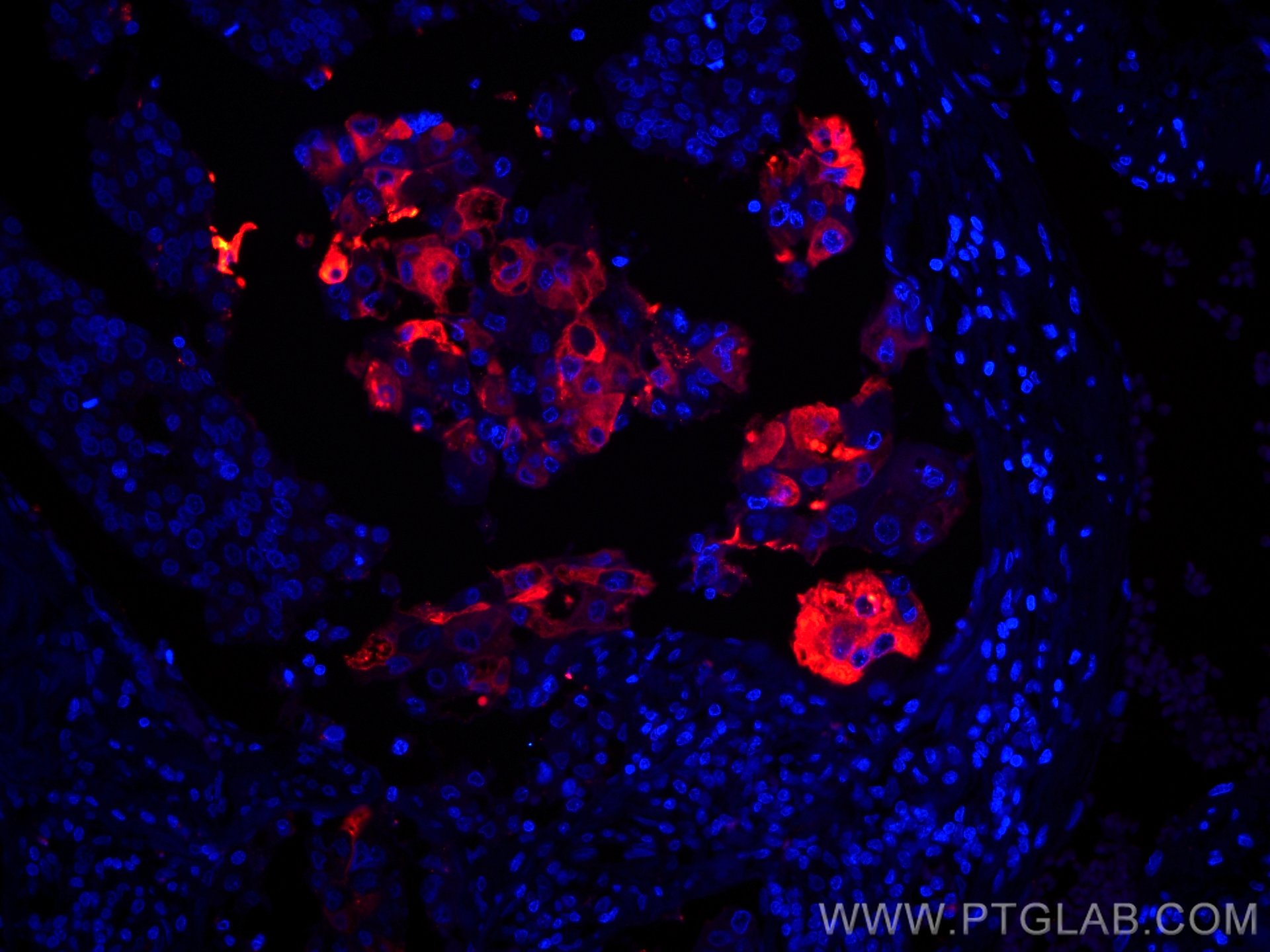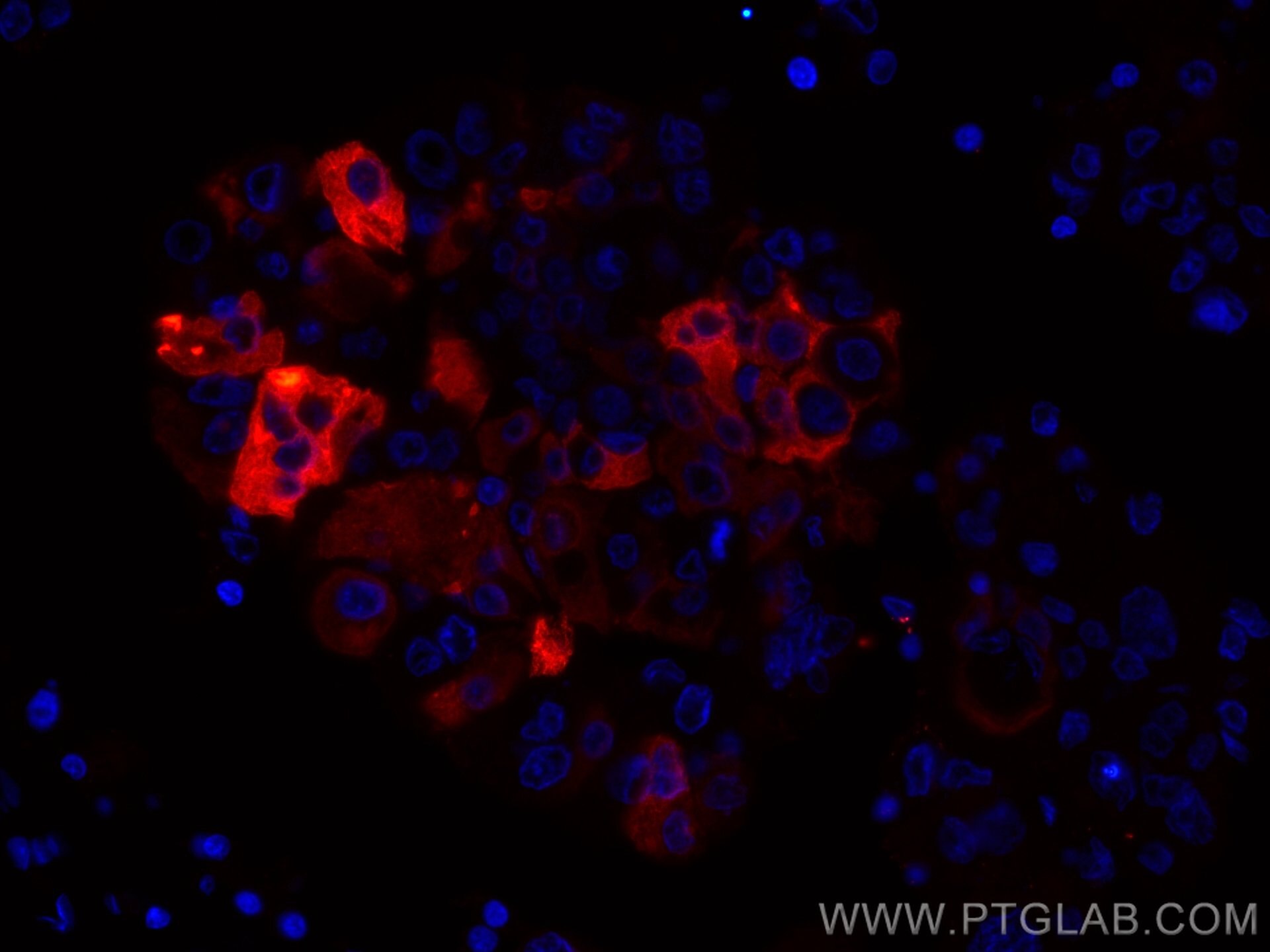Tested Applications
| Positive IF-P detected in | human breast cancer tissue |
Recommended dilution
| Application | Dilution |
|---|---|
| Immunofluorescence (IF)-P | IF-P : 1:50-1:500 |
| It is recommended that this reagent should be titrated in each testing system to obtain optimal results. | |
| Sample-dependent, Check data in validation data gallery. | |
Product Information
CL594-66237 targets Mammaglobin A in IF-P applications and shows reactivity with human samples.
| Tested Reactivity | human |
| Host / Isotype | Mouse / IgG1 |
| Class | Monoclonal |
| Type | Antibody |
| Immunogen | Mammaglobin A fusion protein Ag22485 Predict reactive species |
| Full Name | secretoglobin, family 2A, member 2 |
| Calculated Molecular Weight | 93 aa, 10 kDa |
| GenBank Accession Number | BC128252 |
| Gene Symbol | Mammaglobin A |
| Gene ID (NCBI) | 4250 |
| RRID | AB_2919969 |
| Conjugate | CoraLite®594 Fluorescent Dye |
| Excitation/Emission Maxima Wavelengths | 588 nm / 604 nm |
| Form | Liquid |
| Purification Method | Protein G purification |
| UNIPROT ID | Q13296 |
| Storage Buffer | PBS with 50% glycerol, 0.05% Proclin300, 0.5% BSA, pH 7.3. |
| Storage Conditions | Store at -20°C. Avoid exposure to light. Stable for one year after shipment. Aliquoting is unnecessary for -20oC storage. |
Background Information
Mammaglobin A, also known as SCGB2A2, is a member of the secretoglobin superfamily. Mammaglobin A is a breast cancer-associated antigen almost exclusively over-expressed in primary and metastatic human breast cancers, making it a specific molecular marker and a potential therapeutic target for breast cancer. This monoclonal antibody is raised against full-length of 93-amino acid human mammaglobin A.
Protocols
| Product Specific Protocols | |
|---|---|
| IF protocol for CL594 Mammaglobin A antibody CL594-66237 | Download protocol |
| Standard Protocols | |
|---|---|
| Click here to view our Standard Protocols |





